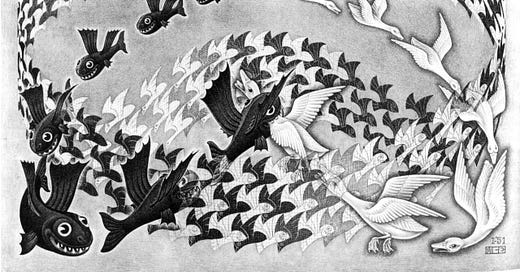"You are the light of the world. A city seated on a mountain cannot be hid. Neither do men light a candle and put it under a bushel, but upon a candlestick, that it may shine to all that are in the house. So let your light shine before men, that they may see your good works, and glorify your Father who is in heaven." Matthew 5:14-16
I thrive on paradox. As one of my best friends never fails to remind me (ok here's your shout out at last, Jenna), I change my opinions quickly and drastically. I change them so radically that I don't remember my previous opinions until they are pointed out to me. Any mental evidence of my previous thought is erased in lieu of my current, strongly-held beliefs. This probably just speaks to the utter uselessness of opinions, but still.
I used to be a runner. I thought that running was the purest sport. It was what humans were built to do (or so a book told me). I spat on weightlifters. In my mind, they were meat-headed jocks who didn't know what true exercise looked like. Then I changed my mind. Now I lift weights and I haven't run in three years. I take long walks instead. Why did I change my mind? It might have had to do with my grandfather's passing. He was a bodybuilder and encouraged me to get into the sport when I was younger. Or it might have come from the right wing anons I follow on Twitter. But really who knows? I changed my mind and started doing something different.
I call myself a philosophical anarchist. I'm a member in good standing of the Catholic Church. I'm even a lector with my local parish. How does this make sense? The church is the quintessential authoritarian religion. The classical anarchist thinker would be disgusted with me. How can you desire the liberation of your fellow men from hierarchy and believe in an all powerful God that demands sacrifice? Is it possible to accept an ultimate Earthly authority and despise any manifestation of power on the ground? Probably not, rationally at least. If I contradict myself then I contradict myself.
I have a really bad memory. It seems as if half of "my" childhood memories were appropriated from my brother. I recount a long-winded comical tale about my younger self and he butts in to say that actually he was the one who experienced it. Damn him. Childhood was a blur. High school was a blur. College was a huge blur. I ride the wave of the present. Experiences come and go, flashing past my senses, and I don't think about them again. To be able to forget your past liberates your present, at least that's what I tell myself. The person I was back then is not who I am now. His thoughts and actions mean nothing to me. What I do now is what matters.
The most interesting things in life exist in the uncertain space between two polar opposites. Authority and freedom. Isolation and connection. Earth and heaven. Dichotomy, the sharp contrast of black and white combining to form varying shades of grey linking two connected, yet antithetical, subjects - exploring the confusion is what makes thinking meaningful. If everything were meant to be understood completely and have a "true" answer, then what fun would there be left in the world? Rationalism is to be despised on aesthetic grounds. Intuition is to be loved because it feels right. Trust that feeling.
Paradoxes are a form of barbell To hold two mutually incommensurable views on a topic of interest generates a volatile, dynamic landscape of mind which is conducive to entertaining thought. The golden mean is not so golden after all. You compromise the outstanding features of the opposing visions for an unhappy middle path. Better to contemplate and sit with the end-member concepts and absorb both of them into your being. Meditating on the uncrossable chasm that shapes so many debates, and accepting it is fun. No compromises, no intellectualizing, only the clarity of not understanding.
Being comfortable with, and loving, ambiguity is a necessary for exploring a fractal, interconnected world. The rational, the explainable, the reducible - they have no place here, as they are boring. The uncertain, the intuitive, the organic - this is what makes life so vital and endlessly stimulating. We in the West are not conditioned to condone complexity. We want to break nature into digestible bits and get to a "first principles" view of its workings. The only way to make nature act this way is to lock it into the Procrustean bed of legibility, dooming it to die the death. Some things have been hidden for a reason.
The unseen is often what is most important. Relying on the evidence in front of your eyes is not rational. Absence of evidence is not evidence of absence. Often what is missing is what is crucial, not what is left behind that we can try to piece together. How do you comprehend that which is inherently unknowable? How does it change your view of what you do see in the world? The unknown unknowns torpedo any narrative the moment it is tested. Path-dependence is the name of the game. Narratives are fun, but not "true".
"Take heed that you do not your justice before men, to be seen by them: otherwise you shall not have a reward of your Father who is in heaven. Therefore when thou dost an almsdeed, sound not a trumpet before thee, as the hypocrites do in the synagogues and in the streets, that they may be honoured by men. Amen I say to you, they have received their reward. But when thou dost alms, let not thy left hand know what thy right hand doth." Matthew 6:1-3



